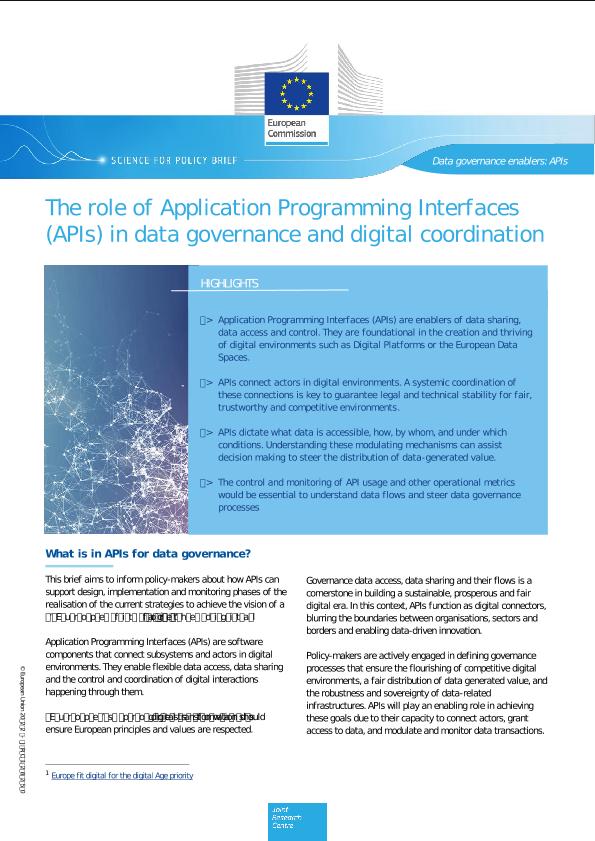The role of Application Programming Interfaces (APIs) in data governance and digital coordination

Digital interactions are nowadays often steered and controlled by technical and legal conditions defined in Application Programming Interfaces (APIs). Understanding these modulating mechanisms can support policymakers to design actions to foster innovation, monitor data governance processes and ultimately steer the data value distribution.
APIs are enablers of data sharing, data access, and control. They are foundational in creating and thriving digital environments such as Digital Platforms or the European Data Spaces. Moreover, APIs connect actors in digital environments. Systemic coordination of these connections is key to guarantee legal and technical stability for fair, trustworthy and competitive digital environments. Additionally, these interfaces dictate what data is accessible, how, by whom, and under which conditions. Understanding the value modulating mechanisms can assist decision making to steer the distribution of data-generated wealth. The control and monitoring of API’s usage and other operational metrics would be essential to understand data flows and steer data governance processes.
From a data governance policy perspective, this brief highlights the role of APIs in the digital transformation framework.
2022-03-01
European Commission
JRC128250
JRC128250_01.pdf
(0.90 MB - PDF)

